#native american languages
Text
every time i see someone say that we should erase all other languages and make english the 'universal language' I'm reminded how ignorant and culturally insensitive some people are. to not be aware of the historical and cultural significance of a language in most cultures is bizarre. in erasing a language you would thus be erasing years of important history of a culture. i hope these people educate themselves before speaking on something they know nothing about simply because it would 'make their lives easier'. not to mention its so tone-deaf to the people who are fighting for language revitalization due to the historical language suppression of their ancestors.
#language#rant#linguistics#culture#history#langblr#native american languages#gaelic#ainu#language revitalization#endangered languages#indigenous#indigenous languages
851 notes
·
View notes
Text
Navajo Phonology: Vowels
Requested by @okaylinguist | Part 1/2
This does not cover every possible way of expressing sounds, as regional varieties are very diverse, this is just a general guide based on my experiences with my family's language.
Simple Vowels
There are 4 core vowels in Navajo:
A = [ɑ] - Similar to father
E = [ɛ] - Similar to pet
I = [ɪ] - Similar to lip
O = [o] - Similar to boat
These vowels can be modified in three different ways: lengthening, shifting to a high tone, and/or nasalization.
Lengthening is indicated with double letters (aa, ee, ii, oo). The core sound listed in IPA above is maintained for all lengthened/double vowels except for ii, which turns to [i] instead of [ɪ].
A high tone is indicated with an upper accent mark (á, é, í, ó). When applied to a long vowel, it can either affect the whole lengthened sound (áá), or show a rising (aá) or falling (áa) tone.
Nasalization is indicated with a "hook" under the vowel (ą, ę, į, ǫ). Some nasal vowels are not written with the hook (for instance, after the letter 'n' typically). Nasal markings can be combined with the high tone mark (ą́, ę́, į́, ǫ́), and obviously also can apply to lengthened vowels. Though unlike the high tones, which can be over the first letter but not the second and vice versa, nasalization always affects the whole lengthened sequence
Constant tone + nasalization: ą́ą́, ę́ę́, į́į́, ǫ́ǫ́
Rising tone + nasalization: ąą́, ęę́, įį́, ǫǫ́
Falling tone + nasalization: ą́ą, ę́ę, į́į, ǫ́ǫ
Diphthongs
The 4 main diphthongs are:
ai = [aɪ] - Similar to bike
ei = [eɪ] - Similar to wait
ao = [aʊ] - Similar to how
oi = [ʊɪ̯] - Similar to bouy
Similar to the simple vowels, they can also be modified.
When lengthening them, typically the second letter is what is repeated (aii, eii, aoo) however for oi, I mostly only ever see ooi written. Another semi-irregular one is aai - some people I know pronounce it as long [aɪ], while others separate the long aa from the i sound more so. This is a case where the regional variety plays a greater role in my experience, as well as some words just preferring one to the other on a case by case basis, so I recommend just following what your teachers/resources tell you.
Miscellaneous Notes
Some people include subtle little "pauses" in their long vowels - not fully stopping and separating it into two vowels, but having a little dip in their tone, as if bridging a gap between the two vowels, especially if it is in the high tone register.
Did you enjoy this post? Do you want to help protect the Navajo language? Consider donating to my tribes' COVID-19 relief fund. The language cannot survive if Diné elders and youth alike are dying.
66 notes
·
View notes
Text
Are any of my followers familiar with Native American terms and terminology? Or know someone who is?
I'm from the UK and currently doing some research on a Welsh play from 1777 in which a character representing England is talking to a character representing a native group from Philadelphia. The play itself is possibly a satire on the American War of Independence. I'm aware of these historical events, but as I grew up in the UK I lack the cultural knowledge of these events. In Welsh, the character representing the native groups in Philadelphia calls her lands Caea (pronounced in Welsh phonetically as kai-ah). In Welsh the word 'cae' means field, perhaps this is relevant somehow?
Given that the text is from 1777, is in Welsh and seems to be making light of the atrocities of settlers towards native groups in America, it could just be a made up group name from some Welshman nearly 250 years ago. But I don't know nearly enough about Native American languages to connect the dots between any term or place.
I know enough to know that if there is a group being referred to here, they're likely speaking an Algonquin language. But I will be the first to say this is slightly out of my wheelhouse and would appreciate any help with this!
#I am also aware enough to know that Native American isn't the preferred term for every group#but I have used it here for consistency#Native American languages#algonquin#perhaps?#war of independence#native languages#indigenous languages#Philadelphia#pennsylvania#linguistics
18 notes
·
View notes
Text
Started learning the Navajo language on duolingo since the main character in my novel is Navajo and I wanted to best represent her and her people. I am trying.. any tips? 😅
#navajo language#duolingo#tips?#native american languages#native american#navajo#culture education#culture#representation matters#help me pls
7 notes
·
View notes
Text
Critically Endangered Language Introduction:
Spokane Language
Npoqínišcn

Some information about the Spokane language:
It’s critically endangered, meaning there are very few native speakers left, who are also elderly, and young people are not picking up the language, but the Spokane Tribe website offers language classes, so hopefully things are improving! Spokane doesn’t have its own original writing system, so a modified Latin script is used. You can read more about the Spokane and Salish languages and people on Wikipedia, here, here and here.
Example Words & Phrases ↓
Provided by Spokane Tribe at this link
ʔa x̣est skʷekʷst
Hello, good morning
ʔa x̣est sx̣lx̣alt
Hello, good day
ʔa x̣est sč̓luxʷ
Hello, good evening
ʔa x̣est skʷkʷʔec
Hello, good night
n̓em heł wíčtmn
I will see you again.
kʷʔec̓ščén̓?
How are you?
hi čn x̣is
I’m fine.
čn ayx̣ʷt
I’m tired.
čn weyt
I’m sick.
stem̓ ha skʷest ?
What is your name?
hi skʷest ____.
My name is…..
____ łuʔ hi skʷest.
My name is…..

Please correct me if I made a mistake
#critically endangered language#language learning#language resource#spokane#spokane tribe#spokane language#beginner spokane#endangered languages#critically endangered languages#endangered culture#endangered language#native languages#native american languages#native language#native american lore#indigenous languages#indigenous language#north american languages#american indian#native american#american languages#north american history#salish language#npoqínišcn#salish languages#salishan languages#salishan language#Critically Endangered Language Introduction#Language Introduction
4 notes
·
View notes
Text
gotta appreciate the fact there’s a myaamia language dictionary online :)
#myaamia#Native American languages#I need to research those people more they piqued my interest#miami illinois people#languages
0 notes
Text
always remember that without white people, Native American languages couldn’t have nearly as shitty orthographies as they do now
#native american#Native American languages#linguistics#linguist humor#lingblr#seriously have you SEEN Saanich?
0 notes
Text
Hello! I’d like to talk a little about how I chose my name. My name is a combination of the Chickasaw words for black (losa) and red (homa). Black bc as a print maker I often work with black ink and red because I got my start in Oklahoma.
1 note
·
View note
Text
#quechua#languages#duolingo#boost#signal boost#share#reblog to spread the word#native american languages
0 notes
Text
ECHO poster in sign language!

#echo#alaqua cox#maya lopez#disney+#mcu#indigenous#native american#american sign language#sign language#deaf#representation matters
420 notes
·
View notes
Text
i. about 2 weeks ago, i was told there's a good chance that in 5 or so years, i'll need a wheelchair.
ii. okay. i loved harry potter as a kid. i have a hypothesis about this to be honest - why people still kind of like it. it's that she got very lucky. she managed to make a cross-generational hit. it was something shared for both parents and kids. it was right at the start of a huge cultural shift from pre to post-internet. i genuinely think many people were just seeking community; not her writing. it was a nice shorthand to create connection. which is a long way of saying - she didn't build this legacy, we built it for her. she got lucky, just once. that's all.
iii. to be real with you, i still struggle with identifying as someone with a disability, which is wild, especially given the ways my life has changed. i always come up against internalized ableism and shame - convinced even right now that i'm faking it for attention. i passed out in a grocery store recently. i hit my head on the shelves while i went down.
iv. he raises his eyebrows while he sends me a look. her most recent new book has POTS featured in it. okay, i say. i already don't like where this is going. we both take another bite of ramen. it is a trait of the villain, he says. we both roll our eyes about it.
v. so one of the things about being nonbinary but previously super into harry potter is that i super hate jk rowling. but it is also not good for my mental health to regret any form of joy i engaged with as a kid. i can't punish my young self for being so into the books - it was a passion, and it was how i made most of my friends. everyone knew about it. i felt like everyone had my same joy, my same fixation. as a "weird kid", this sense of belonging resonated with me so loudly that i would have done anything to protect it.
vi. as a present, my parents once took me out of school to go see the second movie. it is an incredibly precious memory: my mom straight-up lying about a dentist appointment. us snickering and sneaking into the weekday matinee. within seven years of this experience, the internet would be a necessity to get my homework finished. the world had permanently changed. harry potter was a relic, a way any of us could hold onto something of the analog.
vii. by sheer luck, the year that i started figuring out the whole gender fluid thing was also the first year people started to point out that she might have some internalized biases. i remember tumblr before that; how often her name was treated as godhood. how harry potter was kind of a word synonymous for "nerdy but cool." i would walk out of that year tasting he/him and they/them; she would walk out snarling and snapping about it.
viii. when i teach older kids creative writing, i usually tell them - so, she did change the face of young adult fiction, there's no denying that. she had a lot more opportunities than many of us will - there were more publishing houses, less push for "virally" popular content creators. but beyond reading another book, we need to write more books. we need to uplift the voices of those who remain unrepresented. we need to push for an exposure to the bigotry baked into the publishing system. and i promise you: you can write better than she ever did. nothing she did was what was magical - it was the way that the community responded to it.
ix. i get home from ramen. three other people have screenshotted the POTS thing and sent it to me. can you fucking believe we're still hearing this shit from her when it's almost twenty-fucking-twenty-three. the villain is notably also popular on tumblr. i just think that's funny. this woman is a billionaire and she's mad that she can't control the opinions of some people on a dying blue site that makes no money. lady, and i mean this - get a fucking life.
x. i am sorry to the kid i was. maybe the kid you were too. none of us deserved to see something like this ruined. that thing used to be precious to me. and now - all those good times; measured into dust.
/// 9.6.2022 // FUCKING AGAIN, JK? Are you fucking kidding me?
#witches and wizards#kids need to be able to play games without knowing the extended universe#playing was easy#i knew i wasn't gonna be able to explain chronicles of christomancy#but we could pick up a stick and run around#nd say we were magic that would be enough backstory#and i think the last time i felt that sense of community#was the summer of pokemon go#it's about cross-generational connectivity bro#yes there are insular communtities but EVERYONE had fucking read harry potter#which is me saying - i think maybe people don't miss HER or the ACTUAL BOOK tbh#they miss... feeling connected#think about how so many people felt so weirdly ashamed and lost after Game of Thrones ended -#they did SUCH a bad job that the entire community just... vanished.#where beforehand people would have GoT weddings#we are just animals who love stories and love feeling like we speak the same language#btw i am not on twitter so i hadn't seen some of the shit she was doing#and then when i was 19 she published the ''american school'' hogwarts stuff#and was reading it casually bc again a huge nerd#and in it shes like ''the british taught the natives their more civilized magics''#and that was like..................... oh okay. okay. so.....
6K notes
·
View notes
Text
Chitimacha
Chitimacha is a Native American language of Louisiana that was spoken until the death of its last two native speakers, Ben (1934) & Delphine (1940), pictured here.
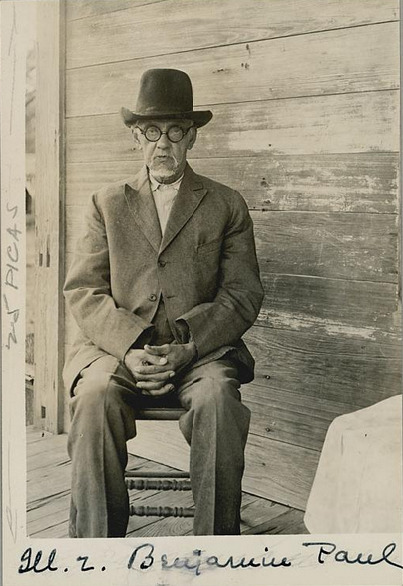
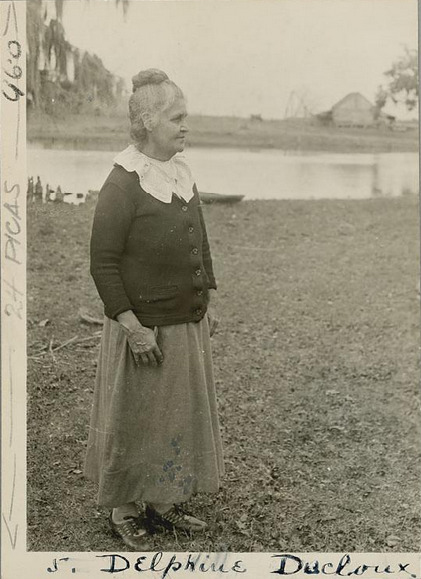
Thankfully, a linguist named Morris Swadesh (pictured) worked with Ben & Delphine to write down 120 Chitimacha stories and create a basic dictionary before they died.

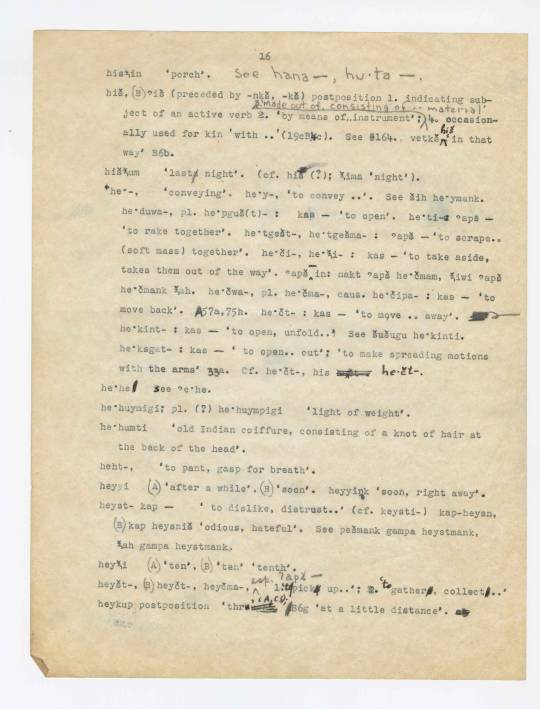
Today, the Chitimacha tribe is revitalizing their language using those archival materials. They’ve created Rosetta Stone language learning software for Chitimacha, have daily language and culture classes in the tribal school, and have put up bilingual English-Chitimacha signs in many places.
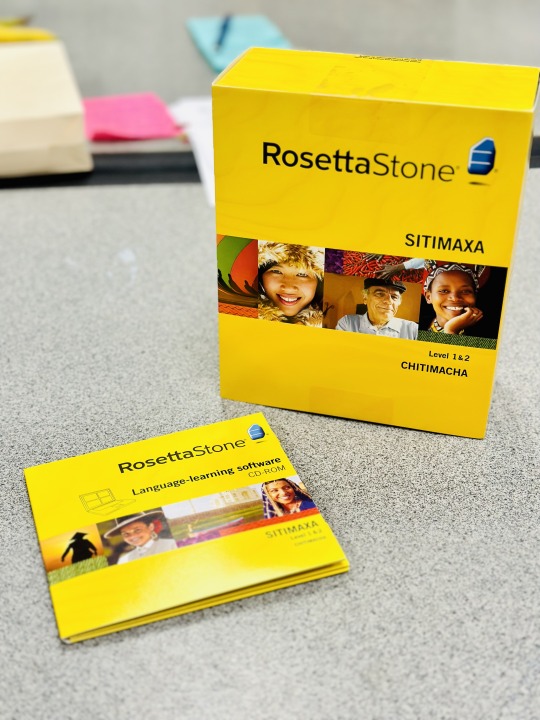
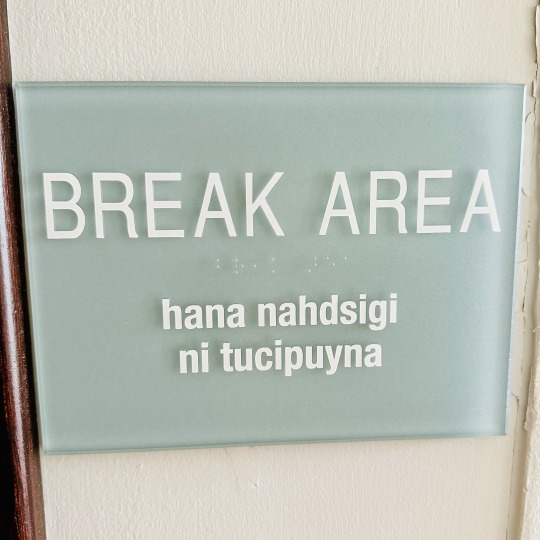

Last week, I visited the Chitimacha reservation to run a workshop for the language teachers. We practiced many different pronunciation and grammar details, but also coined many new words! Here are a few we came up with:
Neymank Waxta ‘Indigenous Peoples Day’ (literally ‘people of the land’s day')
gaspam ‘refrigerator’ (literally ‘thing that causes it to be cold’)
pexpa patsi ‘volleyball’ = pexpa ‘cause to fly’ + patsi ‘ball’
huuta qapx kudihn ‘kayak’ (literally ‘boat closed in on itself’)
Chitimacha has a unique spelling system:
⟨b, d, g, dz, j⟩ are ejective consonants /pʼ, tʼ, kʼ, t͡sʼ, t͡ʃʼ/
⟨q⟩ is a glottal stop /ʔ/
⟨x⟩ is the palato-alveolar fricative /ʃ/
You can read more about the Chitimacha language in my forthcoming book chapter, available here:
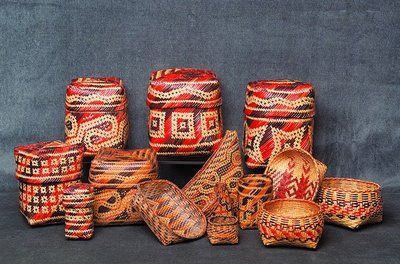
418 notes
·
View notes
Text
Navajo Phonology: Consonants
Part 2/2 - Navigate to my "Grammar Posts" page to see Part 1!
This does not cover every possible way of expressing sounds, as regional varieties are very diverse. This is just a general guide based on my experiences with my family’s language. This is also not an official way of grouping sounds, its just how I organized this post.
Consonant Group 1
These are ones that are identical/similar to the Latin characters they are written with in English. Some consonants are written with more than one character.
Ch = [tʃ] - Similar to church
J = [dʒ] - Similar to jam, though at times its less voiced
L = [l] - Similar to love
M = [m] - Similar to mom
N = [n] - Similar to no
S = [s] - Similar to sun
Sh = [ʃ] - Similar to shoe
W = [w] - Similar to win
Y = [j] - Similar to yes
Z = [z] - Similar to zoo
Consonant Group 2
These are ones that have sounds essentially found in English, but the way they are written does not align exactly with English.
B = [p] - Similar to spot
D = [t] - Similar to stop
Dz = [ts] or [dz] - Similar to hands
G = [k] - Similar to sky
Hw = [hʷ] - Similar to which
Kw = [kʷʼ] - Similar to quick
Zh = [ʒ] - Similar to pleasure
Consonant Group 3
These are the remaining letters/sounds that are in English, but in Navajo they are more aspirated and stronger.
K = [kʰ]
T = [tʰ]
Ts = [tsʰ]
Consonant Group 4
These are ones that are not easily found in English, so may take bit of extra effort to learn.
' = [ʔ] - The glottal stop
Gh = [ɣ] or [ɰ] - Sometimes softens to be like a [w] or semi-vowel
Ł = [ɬ] - Voiceless Alveolar Lateral Fricative
Dl = [tl] or [tɬ]
Tł = [tɬ] - Some may aspirate this sound as well.
Consonant Group 5
This group consists of the Navajo ejective/glottalized consonants.
Ch' = [tʃʼ]
K' = [k']
T' = [t']
Tł' = [tɬʼ] - This is considered the hardest sound in Navajo!
Ts' = [ts']
Consonant Group 6
This consists of only H, which has two different pronunciations.
H at the beginning of a word/syllable = [x]
H at the end of a word/syllable = [h]
If an H comes after the letter S, but is not meant to be the sh digraph, it is written as sx.
17 notes
·
View notes
Text
youtube
Centuries before we had American Sign Language, Native sign languages, broadly known as “Hand Talk,” were thriving across North America. Hand Talk would be influential in the formation of American Sign Language. But it has largely been written out of history.
One of these Hand Talk variations, Plains Indian Sign Language, was used so widely across the Great Plains that it became a lingua franca — a universal language used by both deaf and hearing people to communicate among tribes that didn’t share a common spoken language. At one point, tens of thousands of indigenous people used Plains Indian Sign Language, or PISL, for everything from trade to hunting, conflict, storytelling, and rituals.
But by the late 1800s, the federal government had implemented a policy that would change the course of indigenous history forever: a violent boarding school program designed to forcibly assimilate indigenous children into white American culture — a dark history that we’re still learning more about to this day. Because of a forced “English-only” policy, the boarding school era is one of the main reasons we lost so many Native signers — along with the eventual dominance of ASL in schools for the deaf.
Today, there are just a handful of fluent PISL signers left in the US. In the piece above we hear from two of these signers who have dedicated their lives to studying and revitalizing the language. They show us PISL in action, and help us explore how this ancient language holds centuries of indigenous history.
Read more from Melanie McKay-Cody on the history of Plains Indian Sign Language: https://shareok.org/handle/11244/319767
Check out Lanny Real Bird’s videos: / @lannyrealbird9015
Much of the footage of the 1930 Indian Sign Language Council isn’t online, but check out some of it here: https://commons.wikimedia.org/wiki/Fi...
Here are some original books we reference on sign talk: https://archive.org/details/indiansig...https://archive.org/details/indiansig...
The Smithsonian holds lots of photos and archives on Plains Indian Sign Language like this: https://www.si.edu/object/archives/co...
Sarah Klotz on how Native American boarding schools like Carlisle contributed to the loss of PISL: http://constell8cr.com/issue-2/the-hi.... She references archives that shows how students continued to use sign language like this one from the Carlisle Indian School Digital Resource Center: https://carlisleindian.dickinson.edu/...
#indigenous#native american#ndn#hand talk#asl#sign language#pisl#plains indian sign language#linguistics#boarding schools#indian boarding schools#Youtube
145 notes
·
View notes
Photo

Indigenous Languages of the East Coast.
by u/Pure-Concentrate-466
395 notes
·
View notes
Text
[Cherokee->English] English Wikipedia Article “Keowee”
Link to article
So today I was looking at online lineage records for my family and turns out I have a great great great great great great (we’re basically not related at this point 😆) grandmother who is half Cherokee, and she is listed as being “Keowee Cherokee” and I had not heard of that so I looked it up 👍 her mother is reportedly the sister of Chief Wauhatchee of the Keowee tribe and her father an Indian trader from England who immigrated to the U.S. (at that time British Colonies). Her life and her husbands ranged from 1721 to 1751. I plan to make more posts about places my ancestors are from so that I can learn about obscure places and talk about it online.

—
ᎫᏩᎯᏱ [gu wa hi yi] Keowee?*
Note “ᎫᏩ” means “mulberry” according to cherokeedictionary.net. According to duke-energy.com, “Keowee” means “place of the mulberry”. However I could not find any sources explaining the last two syllables and how they incorporate into the true meaning.
ᎨᎣᏫ [ge o wi] Keowee
Note: in the articles it seems the writers have referred to “ᎫᏩᎯᏱ” as the original spelling of “Keowee” but then lists a second word above the first picture of the article. Phonetically, this second word is clearly a match to “Keowee”.
—
Please correct me if I made a mistake
$5 translation commissions here
#cherokee vocabulary#cherokee#cherokee lang#cherokee vocab#cherokee language#lake keowee#keowee#ancestry#cherokee nation#cherokee nation history#cherokee history#indigenous history#american history#native american lore#native american languages#eastern band#EBCI#south carolina
1 note
·
View note